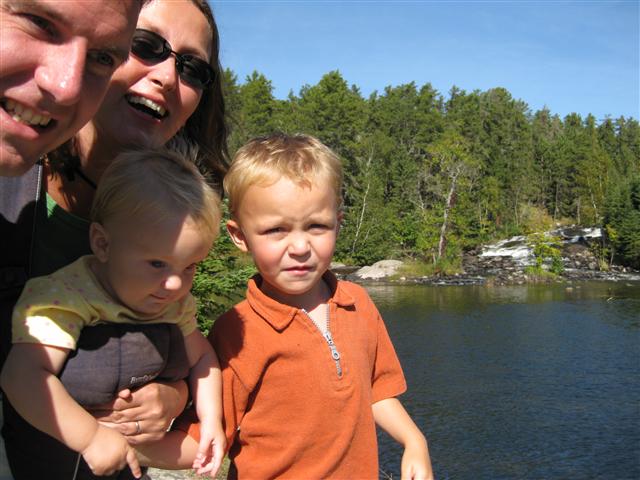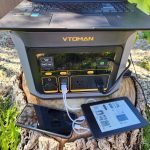
Before we had kids and even before he was my husband, Charles and I spent a year traveling in South East Asia, Australia and New Zealand. We dove the Great Barrier Reef, saw ancient Angkor temples in Cambodia, and watched wild orangutans playing in the Sumatran jungle.
We came out of that with a commitment: We weren’t going to live a conventional life. It was travel for us; the open road and all that it offers. We were going to be digital nomads.
We made a plan: Travel every winter, and come back to Canada in the summers to earn some money, enjoy the sun and visit family.
And then we had children. There are four of us now: Me, Charles, and our two kids, ages six and three.
When our kids came, our friends and family smugly noted that our lives would change. They said traveling with kids was almost impossible. They said that kids needed stability.
The pressure to live a conventional life increases when you have children. It seems to really disturb some people that we don’t have a house in the suburbs, with an enormous mortgage and our little ones in daycare. When I told people we travelled every winter, the response was almost always “It’s great you get to do that before the kids are in school”.
And then I started thinking: What’s the purpose of an education? In the conventional way of thinking, education is to prepare you for a job, and prepare you to make a contribution to society. Education is to prepare you to live a conventional life.
But I want more for my kids. I want them to be able to find their own, true path in this world. I want them to see that people are essentially the same the world over. I want them to have an education that does much more than prepare them for a life in the cubicle nation. What they choose, of course, is up to them. But I want to educate them to be true global citizens, to truly see the incredible beauty and diversity of our earth and the people in it.
We decided to keep on with the same travel philosophy. We’d take our little ones around the world, exposing them to different cultures, languages and people. Our children would have a real education, not just one made up of textbooks and facts. They’d see whales in the oceans, not just read about them in a book.
Our oldest, at six, is halfway through grade one. We’ve made the unusual (for us) choice to stay in Canada this winter and earn some money to finance our travels. So this winter, it’s been easier. We have our little guy in a great school in a lovely little city in British Columbia, Canada.
That doesn’t mean that we don’t struggle with the implications of living our unconventional life with children. The stakes are higher now; we’re not just living this life for us. We’re going to need to balance a lot of things. I’m often torn between finding a place we can call home and the call of adventure. We want it all: a place where we and our kids can develop lasting friendships and a sense of community, and to live our lives as citizens of the world.
But it’s worth it. We’re living an unconventional life to show our kids that it can be done. That having a family doesn’t automatically mean a huge mortgage on a house in the suburbs and two weeks vacation each year. Above all, we’re living it to teach our kids that there’s an amazing world outside of the cul-de-sac and soccer field.






